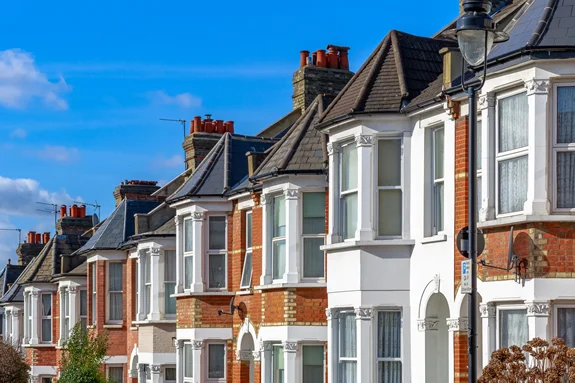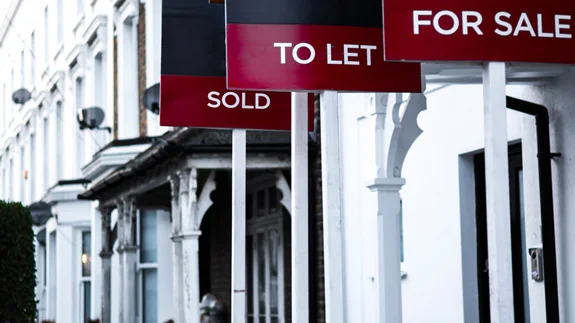Extension on Eviction Bans Confirmed, But What Next?
As part of the UK government’s coronavirus relief efforts, an extension on bailiff-enforced eviction prohibition was recently confirmed.
Having previously been due to expire on January 11, communities secretary Robert Jenrick confirmed that the same legislation would now cover renters until February 21. The extension was announced to safeguard private renters encountering financial issues due to COVID-19 who may be unable to pay their rent through no direct fault of their own.
The most egregious cases can still be brought forward by landlords, such as in the case of wilful property damage or destruction or withholding rent with no justification for doing so. However, the eviction of tenants due to their inability to pay their rent as a direct result of the coronavirus crisis will be prohibited until late February.
Mr Jenrick spoke with confidence about the extension, insisting that it would help thousands of the “most vulnerable” renters in the UK avoid eviction.
The ban was initially enforced in September, at which point the government stated that the rules and the deadline would continuously be revisited to ensure the nation’s private tenants are protected throughout the crisis.
An uncertain future for private renters
Under the current legislation, private landlords are prohibited from evicting tenants without first providing them with a minimum six-month notice period. Speaking on behalf of Citizens Advice, acting chief executive Alistair Cromwell welcomed the decision by the government to extend the deadline for the prohibition policy.
“The government has made the right decision to extend this protection,” he said.
“Renters who are struggling with arrears shouldn’t face the prospect of losing the roof over their heads when everyone is being asked to stay at home.”
However, Mr Cromwell also highlighted the fact that while the extension may offer a temporary lifeline for some, it does nothing to address the potential areas that will “continue to hang over” those affected long-term.
While the eviction ban extension enables struggling tenants to take extended payment breaks due to COVID-related financial hardship, it does nothing to address their escalating levels of debt.
This therefore means that when the eviction ban comes to an end, tenants across the country could face insurmountable debt, with no additional financial support having yet been outlined by the government.
“For tenants, accruing arrears cannot be ignored,” commented Oli Sherlock, head of insurance at lettings platform Goodlord.
“These debts will eventually catch up with them, and the small proportion who aren’t engaging proactively with their landlords will eventually find themselves facing county court judgements, which can have a long-term impact on their credit ratings.”
The National Residential Landlords Association chief executive, Ben Beadle, echoed Mr Sherlock’s sentiments, calling on the government to implement measures to support private renters long-term, not just for the next few weeks or months.
“It means tenants’ debts will continue to mount to the point where they have no hope of paying them off, eventually leading to them having to leave their home,” he said.
“The objective should be to sustain tenancies in the long term and not just in the short term.”
UK House Prices Now 900% the Average Annual Salary
In what is likely to come as a blow for first-time buyers and a boom for existing homeowners, property prices in the UK are a full 5.4% up over the same period last year. This now puts the average market price for a home in the UK at a record high of £245,000, according to the latest figures from the Office for National Statistics (ONS).
Published this week, the data suggests the most rapid year-on-year growth for average house prices in four years. The figure also provides further confirmation that the UK public’s post-lockdown appetite for sales and purchases remains peaked, irrespective of ongoing economic uncertainty.
The temporary stamp duty holiday and additional land tax cuts across the UK have also been credited with fuelling the market’s impressive return to strength.
Additional challenges for aspiring homeowners
Real estate market prosperity may be beneficial for the economy as a whole, though it continues to cause a serious headache for many first-time buyers. A separate report published by the ONS detailing average weekly earnings demonstrated how the vast majority of workers in the UK are being almost entirely priced out of the market.
According to the ONS, the average annual salary in the UK is £26,624, or £512 per week. In this case, the average property price in the UK is no more than 900% higher than what the average employee earns in a year.
Despite assurances, the Bank of England announced that a review of mortgage lending rules would make it easier for first-time buyers to obtain a mortgage. The figures above paint an entirely different picture. The vast majority of major banks and lenders in the UK cap their mortgages at five times the annual salary of the applicant—nowhere near enough to cover the costs of the average UK home.
First-time buyers could therefore find themselves only able to qualify for around 50% of the funds needed to purchase a property, resulting in impossibly elevated down payment requirements to cover the rest. To find out costs more accurately, use our mortgage calculator in the UK.
Loan criteria relaxation and maximum loan adjustments
The Bank of England confirmed this week that it was considering an alteration to existing rules that place limitations on how much people can borrow as a multiple of their annual salary. Nevertheless, the likelihood of this being increased to nine times or even ten times a person’s average salary by any major lender is more or less zero.
Commenting on behalf of Andrews Property Group, chief executive David Westgate predicted a continuation of highly elevated property prices for some time to come.
“For now, house prices are being driven upwards by the stamp duty holiday, but rising unemployment and the small matter of a potentially messy No-Deal Brexit will almost certainly see average values cool off during 2021,” he said.
“Rising redundancies and reduced mortgage availability at higher loan values will invariably hit demand, but the feel-good factor generated by a working vaccine, coupled with the continued lack of supply, could prevent the steep drop in prices some are expecting.”
Are Covid-19 House Hunters Bending or Breaking Lockdown Laws?
One of the biggest differences between the current lockdown and the first lockdown last March is that most of the economy has remained up and running. The real estate sector suffered heavily during the first lockdown, when it was forced to shut down entirely for several months.
Today, buying and selling houses across the United Kingdom is perfectly possible, albeit with added precautions that need to be taken for health and safety reasons.
But what is causing concern for some is that a good deal of COVID-19 house hunters are apparently pushing the boundaries of what is acceptable, in some instances travelling hundreds of miles to view homes.
In-person property inspections are still permitted in England, and property purchase intent remains high in the countdown to the March 31 stamp duty holiday expiration date. Nevertheless, real estate agents have noted a sharp rise in the number of people travelling long distances to view second homes they intend to purchase.
The government continues to recommend virtual property inspections and meetings where possible, a compromise many (if not most) buyers remain unwilling to make.
The government’s rules on house viewing
Some estate agents have spoken of declining viewings from prospective homebuyers intending to travel over 400 miles to view a potential second home. First-time buyers are being shown more leniency than those simply interested in extending their portfolios, given the difference between essential travel and unnecessary journeys.
However, the UK’s real estate sector has acknowledged the lack of clarity on the part of the government with regard to buying, selling, and viewing rules. As has been the case throughout much of the past year, there is a degree of ambiguity in the policy regarding what is and is not allowed.
For example:
- There are currently no laws, rules, or direct restrictions with regard to people viewing properties on the market during the lockdown in England.
- The government has stated that virtual meetings and inspections should be carried out where possible, though this is not a formal requirement.
- Any in-person viewings that take place should be conducted in accordance with all applicable health and safety protocols and social distancing guidelines.
- No specific restrictions have been outlined regarding how far anyone can travel to view a property they intend to purchase.
- There are no differences in the rules for buyers with different intents: first-time buyers, second-home buyers, buy-to-let investors, and so on.
It is therefore entirely up to the prospective buyers and the agents they work with to exercise common sense throughout the process.
With no specific legislation in place regarding the distances that can be travelled to view properties for sale, those choosing to travel hundreds of miles to view prospective homes are not breaking any laws. Nor are the estate agents that choose to arrange viewings for prospective buyers from halfway across the country.
A spokesperson from the Ministry of Housing, Communities, and Local Government simply reaffirmed the importance of those involved taking responsibility for their actions.
“All parties involved must continue to play their part in reducing the spread of the virus by following our guidance to make COVID-19 secure,” the spokesman said.
Top 10 Annual Increases in Property Purchase Search Locations Revealed
As predicted, the rural and coastal areas in the UK were the big winners on the 2020 property purchase landscape by a significant margin. That is according to the latest figures from Rightmove, indicating that Bruton in Somerset topped the table as the most searched-for place among people looking to buy homes this year.
Bruton achieved an impressive 72% increase in buyer interest compared to the same time last year, followed by Pitlochry in Scotland which jumped in popularity by 50% over the same period. Aylesford in Kent followed closely with 48%, after which Salcombe in Devon, a popular seaside resort for short breaks during the summer, proved 47% more popular than last year.
Both Dartmouth in Devon and Light Water in Surrey saw major gains in popularity, attracting 46% more buyer searches than at the same time in 2020.
The popularity of coastal and rural areas reflects the growing trend of relocating from crowded towns and cities to quieter and more tranquil regions among first-time buyers and movers alike. With people spending more time at home than ever before, buyers’ preferences and priorities have shifted wildly over the past 12 months.
Today, the desire to live close to work in a crowded urban centre has been largely replaced with the motivation to move to larger and often more remote properties, ideally with private outdoor living spaces or easy access to nearby green space.
These shifting priorities among buyers have also had a major impact on average asking prices across many regions of the UK. For example, Eccles in Manchester saw the biggest overall annual house price growth for 2020, with homes increasing in price by an average of 16%. This dwarfs the national average house price increase of 6.6% by a huge margin.
Impressively, a further six places in and around Manchester made it into the top 10 list of the highest annual property price increases in the UK for 2020. Wavertree and Chadderton proved particularly popular during the year, chalking up 12.2% and 10.9% average property price increases respectively.
“This year we’ve seen an uplift in the number of home-movers escaping to the country, and we think this trend will continue for now as people show their willingness to make significant life changes,” commented director of property data at Rightmove, Tim Bannister.
“The data highlights just how influential the unexpected events of this year have been in shaping the nation’s housing priorities, with many buyers determined to swap city streets for rural and coastal retreats.”
With home working set to continue as the new norm for the foreseeable future at least, the collective desire among UK homeowners to relocate to quieter and more sparsely populations across the country are likewise set to perpetuate indefinitely.
Almost 74,000 Londoners Bought Homes Outside the Capital in 2020
City workers’ mass exodus from the UK’s biggest towns and cities in search of space and tranquilly continues, new data from Hamptons International Lettings suggests. Throughout the course of 2020, it is estimated that Londoners seeking sanctuary from city life purchased almost 74,000 homes outside the capital.
Outmigration from densely populated urban centres continues to be the major real estate trend of the moment, with millions having indicated their intent to purchase properties in rural, countryside, or coastal locations.
The latest figures from Hamptons International Lettings suggest that 73,950 homes outside the capital were purchased by Londoners this year. This equates to the largest proportion of Londoners fleeing the city in more than four years, despite the housing market having been shut down in its entirety for more than seven weeks.
Had the real estate market not been shut down during lockdown, it is estimated that the figure would be significantly higher.
Shifting property purchase intent
In total, Londoners purchasing properties outside the city spent a combined £27.6 billion on homes away from the capital, which was the highest figure recorded since 2007. To put it into context, the total value of all residential property sales in the northwest of England last year reached just £24.8 billion.
During the first two quarters of the year, just under 7% of properties sold outside London were purchased by London residents, which is somewhere in the region of 24,500 sales. This then skyrocketed during the closing two quarters of the year, as the dangers posed by the pandemic grew along with the appeal of less densely populated rural and coastal retreats.
As a result, 7.8% of residential properties sold outside London went to London residents during this six-month period, which is just under 49,500 properties. The value of which came to around £18.4 billion. That is more than the total property purchases by Londoners outside the capital for any full year between 2008 and 2013.
Seeking sanctuary further afield
Hamptons International Lettings’ newly published data also suggests that Londoners setting their sights on properties away from the city are also purchasing properties significantly further away from the capital than before.
During 2020, Londoners purchasing properties outside the city moved an average of 40 miles from the capital for the first time in more than 10 years. During Q1 of this year, the average distance moved by Londoners stood at approximately 28 miles.
Interestingly, first-time buyers looking to get on the property ladder for the first time proved more likely to stay loyal to the capital, at least in terms of distance. Those living in London who purchased properties for the first time outside the capital moved an average of 26 miles, according to the data published by Hamptons International Lettings.
Their study also noted an uptick in the number of movers setting their sights on larger properties with private outdoor living spaces, with fewer movers looking to purchase small homes or flats than in previous years.
Lockdown Restrictions Fail to Hamper Housing Market Activity in the UK
Most of the United Kingdom is once again in some form of lockdown. Nevertheless, there is something distinctly different about lockdown 2, particularly when viewed from a financial perspective.
Lending and borrowing remain challenging subjects for providers and customers alike, though not nearly on the same level as when the pandemic first hit.
Why Lockdown 2 is different
When COVID-19 made its unwelcome arrival at the beginning of the year, the decision was made to shut down the country practically in its entirety. Rather than simply being slowed down or altered in trajectory, vast proportions of the economy were brought to a screeching halt.
The housing market was one of the main examples (and victims) of the first lockdown, which for several weeks ceased to exist.
The UK is currently under a second lockdown, once again having an impact on the economy. Nevertheless, today’s lockdown is different from the previous lockdown in that the activities that are the lifeblood of the real estate market have been permitted to continue.
Property valuations can still go ahead, inspections can take place, and transactions are being processed as normal. Or at least, as close to ‘normal’ as things are likely to get in the foreseeable future.
Pent-up demand fuels market activity
What is also interesting is the way in which pent-up demand from the first lockdown continues to fuel market activity during the current lockdown. In what is usually a time of near-universal reluctance and fear over ongoing economic uncertainty, movers and first-time buyers alike are choosing to go ahead with their property purchases regardless.
Lenders and brokers alike have also cited the government’s recently extended stamp duty holiday as a catalyst for the current spike in activity. For those able to complete qualifying transactions before March 31, 2021, savings of thousands of pounds are still available. an opportunity many are apparently finding too good to pass up.
Alternative lending options
Applications and general housing market activity may be on the up, but lockdown is once again bringing one major challenge into the mix – extended application processing times and the subsequent delays and complications that accompany them.
Even now, many prospective homebuyers are finding themselves in a position where the March 31 stamp duty deadline is too close to call. Major banks and High Street lenders are not only tightening their restrictions in regard to who can qualify for a mortgage but are also taking longer than ever to process applications and release funds.
This has spurred many applicants to consider alternative lending options, such as bridging loans. Accessed via an experienced independent broker, a bridging loan can provide a fast-access alternative to a conventional mortgage. often released within a matter of days.
The extent to which the rollout of the COVID-19 vaccine influences any of the above remains to be seen. As far as the housing market in general is concerned, you need only look at fast-accelerating property prices in key areas to see how strongly the sector is performing—even in the face of a second national lockdown.
Reports of Scams Rise as Stamp Duty Holiday Deadline Looms
A leading independent financial advice watchdog in the United Kingdom has issued a warning to prospective home buyers, regarding widespread reports of scams in the run-up to the conclusion of the temporary stamp duty holiday.
Motivated by significant potential savings and driven by what is becoming a race against time, enthusiastic buyers are increasingly playing into the hands of fraudsters. The looming March 31 stamp duty holiday deadline is being taken advantage of by criminals across the country, tricking buyers into paying money into fraudulent accounts.
Specifically, phishing emails requesting payment information from home buyers have been cited as a major problem by UK Finance.
Huge losses, rising instances of identity theft
According to the watchdog, more than £16.2 million was stolen from personal accounts during the first half of 2020 alone, primarily due to scams involving emails containing new payment details.
Instances of identity theft, in general, are also up, posing a major risk to those attempting to rush transactions to take advantage of the stamp duty holiday before it expires.
“Moving house can be a stressful time; however, it’s vital to remember to take steps which could keep you safe from scams,” commented the managing director of economic crime at UK Finance, Katy Worobec.
“This includes letting your bank and other organisations know that you’ve changed address, making sure your mail is secure, and ensuring the recipient’s bank details are correct when paying large amounts of money during the house-buying process, such as your deposit.”
UK Finance has once again urged buyers to be vigilant against such attacks, advising caution and scrutiny where any emails are received that contain new payment details or requests for payments to different accounts.
Duplicate invoices for services provided should also be monitored, as should any emails or telephone calls asking customers to confirm information such as their bank account numbers or login credentials.
Identity theft prevention
To reduce the risk of falling victim to identity theft, UK Finance has advised homebuyers to verify every payment request or information request with their bank and/or real estate agent directly, before providing any information or transferring any funds.
All incoming communications regarding payment information or requests for personal data should be treated as suspicious until verified by contacting the appropriate provider directly.
The temporary stamp duty holiday introduced by the chancellor has removed all stamp duty liabilities for anyone purchasing a property with a market value of £500,000 or less.
This amounts to a significant discount on the overall purchase price for the vast majority of buyers until March 31, augmenting the sum normally expected by way of a deposit.
Three Property Market Trends to Expect in 2021
Attempting to accurately project trends and shifts in the UK property market for the year ahead is never easy. Compounded with the chaos 2020 brought to buyers, sellers, investors, and developers across the country, it is difficult to voice any outright assurances for the year ahead.
Recent activity over the past couple of quarters, however, coupled with comparisons from previous times of economic crisis, highlights a series of possible scenarios by 2021. The majority of independent experts and advisers foresee the following three trends playing a major role in the housing market over the next 12 months:
A slowdown in property price growth
The combination of pent-up post-lockdown demand being released on the market and the chancellor’s stamp duty holiday resulted in a massive surge in property sales and purchase activity towards the tail end of the year. Give things another three months or so, and a pronounced cooldown is inevitable, which some anticipate could lead to a halt to house price growth.
For the year, Capital Economics believes that average house prices could fall by as much as 5% by the end of next year. This is something of a doomsday scenario; others predict a much gentler slowdown, which is unlikely to affect average house prices in most key areas.
Borrowers looking beyond the high street
As major banks and lenders continue to tighten their lending criteria and complicate application processes, the whole thing is playing directly into the hands of alternative finance providers. Development finance providers and bridging loan specialists have noted a major spike in activity, fuelled by the growing complications associated with seeking help on the high street.
Independent lenders have demonstrated their value and importance throughout the COVID-19 crisis, during which many conventional lending channels have been closed completely. The flexibility and affordability of bridging are proving popular among private customers and business borrowers alike. Meanwhile, specialist development finance continues to offer a lifeline to developers looking to get back to business in post-lockdown Britain.
Major property market performance disparity
Lastly, there will continue to be a major disparity in housing market performance and average property prices from one region of the UK to the next. But what will be different this time around is the prominence of property investment and development hotspots far outside the usual safe havens.
As people continue to flee from major cities in search of more tranquil rural retreats, areas of the UK once overlooked could burst into life in 2021. In particular, the Northwest and Midlands are widely expected to outperform the South and Southeast—something that could not have been predicted as recently as a couple of years ago.








